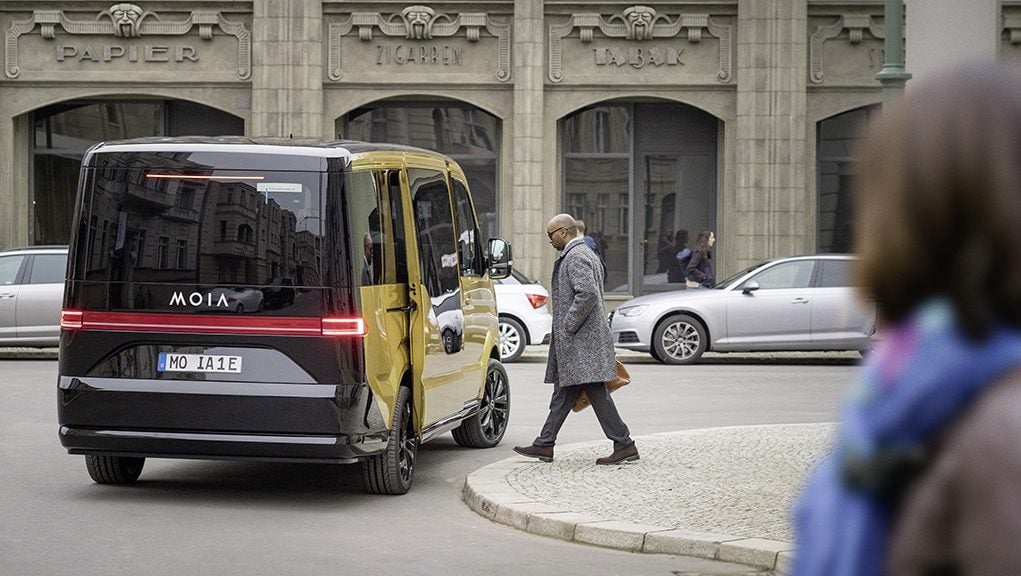Volkswagen thinks its ride-sharing electric minibus will take 1 million cars off the road
The world’s largest automaker is getting into the ride-sharing business as it prepares for a world with fewer cars.


The world’s largest automaker is getting into the ride-sharing business as it prepares for a world with fewer cars.
Volkswagen’s Moia brand unveiled on Monday (Dec. 4) a much-anticipated vehicle for its first ride-hailing service. The vehicle is a six-seater, all-electric minibus with a 300 kilometer (186 mile) range and USB ports, reading lights, and Wi-Fi for each passenger. A user will be able to hail the minivan using a custom app, and algorithms will optimize the ride-sharing by matching customers with similar destinations.
The minibus service will hit the streets of Hamburg, Germany, in the latter half of 2018 and start with a fleet of 200 vehicles, Moia CEO Ole Harms said on Monday at the TechCrunch Disrupt conference in Berlin. From there, the service will expand to around 1,000 vehicles and enter new cities in Europe and the US. Harms said he expects the minibuses to take 1 million cars off the road by 2025, which Volkswagen acknowledged would in-part cannibalize its car sale business.
“If we don’t do this, competitors will,” Volkswagen strategy chief Thomas Sedran said at the conference.
Volkswagen launched Moia last December with an investment in the “significant three-digit million-euro range,” Harms told Bloomberg last year. According to its website, its goal is to develop a broad portfolio of on-demand services that will improve people’s commutes and reduce urban congestion and pollution.
At last year’s Disrupt conference, Harms said Moia aims to generate “a couple of billion” euros in revenue over the next few years and grow into one of the three biggest mobility providers in the world. At this year’s conference, he hinted that the company has other technologies and ideas in the works but didn’t disclose further details.
Volkswagen isn’t the only automaker that has made moves to enter the digital transportation space. In September of last year, Ford acquired Chariot, a similar San Francisco-based minibus ride-sharing service, as part of its larger efforts to provide alternate forms of transportation. Chariot has since expanded to New York, Seattle, and Austin-San Antonio.
It remains to be seen whether these minibus services will successfully ease urban traffic. A working paper in October found that services like Uber and Lyft have reduced mass transit utilization and have likely increased congestion since their adoption in seven major American cities.
But MOIA has positioned its minibus concept as a better solution—one that works for “a world that doesn’t like sharing.” “We will prove that sharing allows you to keep your personal space—even get you more of it,” said Harms before showcasing the minibus’s interior design. Based on research and feedback from customers, the design—including the separation of the seats and positioning of the armrests—intentionally protects personal space. “From the moment you are in your seat, your personal space is sacred, and this will be true of every future vehicle,” Harms emphasized.
“To some of you, [our goal] potentially might sound crazy,” said Harms, directly addressing the skepticism. “Believe me, we’ve done our math, and it’s well within our reach.”